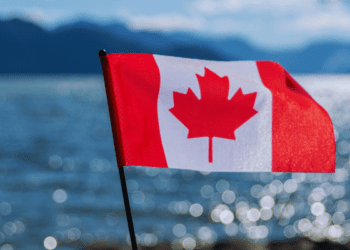In the new edition of Inside Policy, the magazine of the Macdonald-Laurier Institute, the Canadian Federation of Independent Business’ Monique Moreau shows how provincial red tape and regulation prevents companies from doing business across provincial boundaries.
Moreau calls on the provinces to reach a new agreement on liberating trade within Canada sooner rather than later.
The latest edition of Inside Policy examines the role that internal trade barriers play in making it difficult for Canadian businesses to compete across provincial boundaries.
By Monique Moreau, Nov. 17, 2014
The expression “red tape” refers to any unnecessary or redundant regulation that hinders productivity. The origin of the expression can be traced as far back as the 16th century, when many official Vatican and royal court documents were sealed in red tape. This tradition of using red tape on official government correspondence continued throughout the ages, leading to an association between red tape and regulations. This association was then popularized by British satirists like Charles Dickens and Thomas Carlyle, who used “red tape” as a short-hand reference for unnecessary laws passed by the British Parliament. Red tape had by then become symbolic of over-regulation and bureaucracy in the government.
Today, the phrase evokes a variety of frustrations, including complying with rules that make no sense or deliver little benefit and much cost; wasting time waiting in line to get a form approved or on the telephone waiting for advice; wading through complicated language to try to figure out compliance obligations; filling out cumbersome, unnecessary paperwork; and suffering the uncertainty and delays that can come with waiting for permit or license approvals.
The CFIB regularly surveys our 109,000 small businesses members on their top priorities. Reducing red tape has consistently been their second highest priority: the only issue of higher concern is the total tax burden (see Figure 1). While reducing red tape has been a clear priority for business, until recently it has not been a priority for most governments in this country, likely because it has been invisible to most Canadians. However, red tape is clearly visible to businesses, which have to comply with a plethora of rules from multiple levels of government.
Small business owners in Canada know that some regulations have positive impacts (e.g., supporting efficient and effective markets, providing business and consumer protection). They deal with these regulations daily and have no objection to rules that are needed and administered fairly. Too much regulation, however, can turn into something regressive and destructive: red tape.
Just as exporting to other countries is an important economic driver, it is vital that small businesses across the country have fair and open access to markets within Canada. While there is a tendency in academic and other circles to think primarily about prohibitive trade barriers, our members tell us that many of the barriers they face are “red tape” barriers such as the lack of mutual recognition of standards and certifications, the need to register separately with authorities in different jurisdictions, and the need to properly understand complex rules that differ in each jurisdiction. All present a productivity drain for small firms and damage our economic performance.
Small businesses that have overcome significant barriers to trading across provincial barriers make up a vital and growing segment of the economy. It is vital that their needs are at the centre of discussions to update the Agreement on Internal Trade or any free trade deals between provinces and territories.
When it comes to internal trade, CFIB research shows that small businesses are most likely to trade with partners within their own region or a neighboring region. There are, however, some exceptions. Half of businesses from Newfoundland that trade do so with Alberta. Nearly half of Nova Scotia businesses are trading with Alberta. Over a third of businesses in Quebec are also trading with British Columbia and Alberta.
For those small businesses that do trade internally, regulatory and administrative barriers, in their various forms, are the most prominent barriers to trade, especially for the smallest of small businesses. The expenses associated with trade, whether it is shipping costs or paying for different permits and licenses were also a significant challenge for businesses currently trading.
While some small businesses do not trade because their product or service is simply not exportable, for others, trading outside of their own provinces is simply too expensive, taxation rules are too complex, and the paperwork is too burdensome. A good example is first aid kits, whose contents are different in every province, requiring business owners to purchase different kits within each province and first aid kit providers to comply with different regulations per province. Even a local microbrewery has shared that it is easier to sell into the United States than into a neighbouring province. These are only some of the barriers faced by small business owners wishing to do business in a different province. Red tape gets in the way, so they do not trade at all, which is an outcome we need to change by renewing and rebuilding the Agreement on Internal Trade.
While the announcement of a steering committee to lead the renewal of the Agreement on Internal Trade was an encouraging first step, the 2016 target for concluding negotiations is not ambitious enough for Canadian businesses. To the detriment of the economy, progress on this file has been quite limited in most jurisdictions. Reforms are long overdue. It is imperative that the provinces move forward with meaningful action quickly. CFIB will soon be publishing a report containing the bigger picture about how small businesses in Canada are trading with each other, and who they are trading with. It will also reveal in greater detail what governments at all levels can do to remove restrictive red tape and encourage trade within Canada at a time when it might very well be easier to do trade internationally. We hope that our recommendations and the challenges experienced by small- and medium-sized businesses will help to inform constructive reforms that will reduce and remove trade barriers within Canada.
Monique Moreau is Director, National Affairs, at the Canadian Federation of Independent Business. CFIB represents 109,000 small- and medium-sized business owners in Canada.




